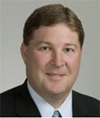Four Reasons the Private Family Trust Company Market is Growing

A notable trend in recent years has been the increasing popularity of private family trust companies (PFTCs). This growth is rooted in multiple factors, but here are four of the biggest.
IRS Notice 2008-63, a preliminary release outlining a structure to avoid adverse estate tax consequences
In Notice 2008-63, the IRS provided two private family trust company scenarios to avoid adverse estate tax consequences in a regulated and an unregulated state. Both scenarios are meant to avoid family members interfering with decisions regarding discretionary trust distributions and to limit the ability of family members to participate in personnel decisions. The Notice suggests a structure with a board of directors and committees (investment, distribution). In unregulated states, the IRS suggested the creation of an amendment committee, which would be charged with making changes to governing documents.
Dodd-Frankand the changes made to the definition of a “family office”
Family offices were typically considered investment advisors under the Investment Advisors Act of 1940. Many family offices took advantage of an exemption from registration with the SEC by having less than 15 clients and meeting certain other conditions. The Dodd-Frank Act repealed the 15-client exemption in order to allow the SEC to regulate hedge funds and other private fund advisors. The Dodd-Frank Act continued to carve out an “exemption” for family offices, however, by including a provision that required the SEC to define family offices to keep them exempt from regulation under the Advisors Act. A “family office” is defined as a company that has no clients other than family clients and is owned or controlled, directly or indirectly, operated by or primarily for the benefit of family clients, and does not hold itself out to the public as an investment advisor.
As a result, family offices continue to be exempt from regulation by the SEC, resulting in greater interest among those who may have once been unsure of the regulatory strength of a family office structure.
An unwillingness of institutional trustees to accept or manage concentrated family held assets
In general, institutional trustees are hesitant to accept or manage accounts that contain concentrated family held assets due to the risk involved and the requirements of the prudent investor rule. As a result, institutional trustees tend to charge higher fees. These issues can create tension between the institutional trustee and family. A PFTC eliminates this tension and allows for the opportunity to purchase directors/officers and errors/omissions insurance against this type of risk.
Increasing concern about the use of individual trustees
These concerns include:
- Privacy
- Succession planning
- Liability
- Family involvement
Ultimately, the structure and operations of PFTCs are as varied as the families who organize them. As more and more trusted advisors and family members become aware of the strengths of utilizing a PFTC and are comfortable with it, the industry will continue to experience consistent growth.
About Matt Tobin

About Tom Cota
